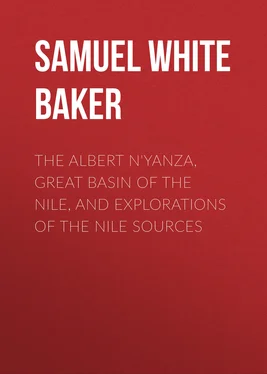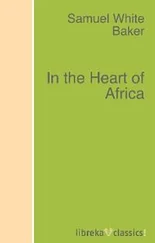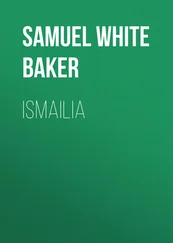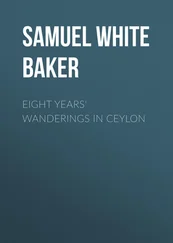Samuel White Baker - The Albert N'Yanza, Great Basin of the Nile, And Explorations of the Nile Sources
Здесь есть возможность читать онлайн «Samuel White Baker - The Albert N'Yanza, Great Basin of the Nile, And Explorations of the Nile Sources» — ознакомительный отрывок электронной книги совершенно бесплатно, а после прочтения отрывка купить полную версию. В некоторых случаях можно слушать аудио, скачать через торрент в формате fb2 и присутствует краткое содержание. Издательство: Иностранный паблик, Жанр: Путешествия и география, История, foreign_edu, foreign_antique, foreign_prose, на английском языке. Описание произведения, (предисловие) а так же отзывы посетителей доступны на портале библиотеки ЛибКат.
- Название:The Albert N'Yanza, Great Basin of the Nile, And Explorations of the Nile Sources
- Автор:
- Издательство:Иностранный паблик
- Жанр:
- Год:неизвестен
- ISBN:нет данных
- Рейтинг книги:4 / 5. Голосов: 1
-
Избранное:Добавить в избранное
- Отзывы:
-
Ваша оценка:
- 80
- 1
- 2
- 3
- 4
- 5
The Albert N'Yanza, Great Basin of the Nile, And Explorations of the Nile Sources: краткое содержание, описание и аннотация
Предлагаем к чтению аннотацию, описание, краткое содержание или предисловие (зависит от того, что написал сам автор книги «The Albert N'Yanza, Great Basin of the Nile, And Explorations of the Nile Sources»). Если вы не нашли необходимую информацию о книге — напишите в комментариях, мы постараемся отыскать её.
The Albert N'Yanza, Great Basin of the Nile, And Explorations of the Nile Sources — читать онлайн ознакомительный отрывок
Ниже представлен текст книги, разбитый по страницам. Система сохранения места последней прочитанной страницы, позволяет с удобством читать онлайн бесплатно книгу «The Albert N'Yanza, Great Basin of the Nile, And Explorations of the Nile Sources», без необходимости каждый раз заново искать на чём Вы остановились. Поставьте закладку, и сможете в любой момент перейти на страницу, на которой закончили чтение.
Интервал:
Закладка:
Jan. 29th.—Passed a multitude of cattle and natives on a spot on the right bank, in clouds of smoke as a "chasse des moustiques." They make tumuli of dung, which are constantly on fire, fresh fuel being continually added, to drive away the mosquitoes. Around these heaps the cattle crowd in hundreds, living with the natives in the smoke. By degrees the heaps of ashes become about eight feet high; they are then used as sleeping-places and watch-stations by the natives, who, rubbing themselves all over with the ashes, have a ghastly and devilish appearance that is indescribable. The country is covered with old tumuli formed in this manner. A camp may contain twenty or thirty such, in addition to fresh heaps that are constantly burning. Fires of cow-dung are also made on the leveled tops of the old heaps, and bundles of green canes, about sixteen feet high, are planted on the summit; these wave in the breeze like a plume of ostrich feathers, and give shade to the people during the heat of the day.
JAN. 30TH.—Arrived at the "Shir" tribe. The men are, as usual in these countries, armed with well-made ebony clubs, two lances, a bow (always strung), and a bundle of arrows; their hands are completely full of weapons; and they carry a neatly-made miniature stool slung upon their backs, in addition to an immense pipe. Thus a man carries all that be most values about his person. The females in this tribe are not absolutely naked; like those of the Kytch, they wear small lappets of tanned leather as broad as the hand; at the back of the belt, which supports this apron, is a tail which reaches to the lower portions of the thighs; this tail is formed of finely-cut strips of leather, and the costume has doubtless been the foundation for the report I had received from the Arabs, "that a tribe in Central Africa had tails like horses." The women carry their children very conveniently in a skin slung from their shoulders across the back, and secured by a thong round the waist; in this the young savage sits delightfully. The huts throughout all tribes are circular, with entrances so low that the natives creep both in and out upon their hands and knees. The men wear tufts of cock's feathers on the crown of the head; and their favorite attitude, when standing, is on one leg while leaning on a spear, the foot of the raised leg resting on the inside of the other knee. Their arrows are about three feet long, without feathers, and pointed with hard wood instead of iron, the metal being scarce among the Shir tribe. The most valuable article of barter for this tribe is the iron hoe generally used among the White Nile negroes. In form it is precisely similar to the "ace of spades." The finery most prized by the women are polished iron anklets, which they wear in such numbers that they reach nearly half-way up the calf of the leg; the tinkling of these rings is considered to be very enticing, but the sound reminds one of the clanking of convicts' fetters.
All the tribes of the White Nile have their harvest of the lotus seed. There are two species of water-lily—the large white flower, and a small variety. The seed-pod of the white lotus is like an unblown artichoke, containing a number of light red grains equal in size to mustard-seed, but shaped like those of the poppy, and similar to them in flavour, being sweet and nutty. The ripe pods are collected and strung upon sharp-pointed reeds about four feet in length. When thus threaded they are formed into large bundles, and carried from the river to the villages, where they are dried in the sun, and stored for use. The seed is ground into flour, and made into a kind of porridge. The women of the Shir tribe are very clever at manufacturing baskets and mats from the leaf of the dome palm. They also make girdles and necklaces of minute pieces of river mussel shells threaded upon the hair of the giraffe's tail. This is a work of great time, and the effect is about equal to a string of mother-of-pearl buttons.
Jan. 31st.—At 1.15 P.M. sighted Gebel Lardo, bearing S. 30 degrees west. This is the first mountain we have seen, and we are at last near our destination, Gondokoro. I observed to-day a common sand-piper sitting on the head of a hippopotamus; when he disappeared under water the bird skimmed over the surface, hovering near the spot until the animal reappeared, when he again settled.
Feb. 1st.—The character of the river has changed. The marshes have given place to dry ground; the banks are about four feet above the water-level, and well wooded; the country having the appearance of an orchard, and being thickly populated. The natives thronged to the boats, being astonished at the camels. At one village during the voyage the natives examined the donkeys with great curiosity, thinking that they were the oxen of our country, and that we were bringing them to exchange for ivory.
Feb. 2nd—The mountain Lardo is about twelve miles west of the river. At daybreak we sighted the mountains near Gondokoro, bearing due south. As yet I have seen no symptoms of hostility in this country. I cannot help, thinking that the conduct of the natives depends much upon that of the traveller. Arrived at Gondokoro. By astronomical observation I determined the latitude, 4 degrees 55 minutes North, Longitude 31 degrees 46 minutes East. Gondokoro is a great improvement upon the interminable marshes; the soil is firm and raised about twenty feet above the river level. Distant mountains relieve the eye accustomed to the dreary flats of the White Nile; and evergreen trees scattered over the face of the landscape, with neat little native villages beneath their shade, form a most inviting landing-place after a long and tedious voyage. This spot was formerly a mission-station. There remain to this day the ruins of the brick establishment and church, and the wreck of what was once a garden; groves of citron and lime-trees still exist, the only signs that an attempt at civilization has been made—"seed cast upon the wayside." There is no town. Gondokoro is merely a station of the ivory traders, occupied for about two months during the year, after which time it is deserted, when the annual boats return to Khartoum and the remaining expeditions depart for the interior. A few miserable grass huts are all that dignify the spot with a name. The climate is unhealthy and hot. The thermometer from 90 to 95 degrees Fahrenheit at noon in the shade.
I landed the animals from the boats in excellent condition all rejoicing in the freedom of open pasturage.
CHAPTER II
BAD RECEPTION AT GONDOKORO
All were thankful that the river voyage was concluded; the tedium of the White Nile will have been participated by the reader, upon whom I have inflicted the journal, as no other method of description could possibly convey an idea of the general desolation.
Having landed all my stores, and housed my corn in some granaries belonging to Koorshid Aga, I took a receipt from him for the quantity, and gave him an order to deliver one-half from my depot to Speke and Grant, should they arrive at Gondokoro during my absence in the interior. I was under an apprehension that they might arrive by some route without my knowledge, while I should be penetrating south.
There were a great number of men at Gondokoro belonging to the various traders, who looked upon me with the greatest suspicion; they could not believe that simple travelling was my object, and they were shortly convinced that I was intent upon espionage in their nefarious ivory business and slave-hunting.
In conversing with the traders, and assuring them that my object was entirely confined to a search for the Nile sources, and an inquiry for Speke and Grant, I heard a curious report that had been brought down by the natives from the interior, that at some great distance to the south there were two white men who had been for a long time prisoners of a sultan; and that these men had wonderful fireworks; that both had been very ill, and that one had died. It was in vain that I endeavoured to obtain some further clue to this exciting report. There was a rumour that some native had a piece of wood with marks upon it that had belonged to the white men; but upon inquiry I found that this account was only a report given by some distant tribe. Nevertheless, I attached great importance to the rumour, as there was no white man south of Gondokoro engaged in the ivory trade; therefore there was a strong probability that the report had some connexion with the existence of Speke and Grant. I had heard, when at Khartoum, that the most advanced trading station was about fifteen days' march from Gondokoro, and my plan of operations had always projected a direct advance to that station, where I had intended to leave all my heavy baggage in depot, and to proceed from thence as a "point de depart" to the south. I now understood that the party were expected to arrive at Gondokoro from that station with ivory in a few days, and I determined to wait for their arrival, and to return with them in company. Their ivory porters returning, might carry my baggage, and thus save the backs of my transport animals.
Читать дальшеИнтервал:
Закладка:
Похожие книги на «The Albert N'Yanza, Great Basin of the Nile, And Explorations of the Nile Sources»
Представляем Вашему вниманию похожие книги на «The Albert N'Yanza, Great Basin of the Nile, And Explorations of the Nile Sources» списком для выбора. Мы отобрали схожую по названию и смыслу литературу в надежде предоставить читателям больше вариантов отыскать новые, интересные, ещё непрочитанные произведения.
Обсуждение, отзывы о книге «The Albert N'Yanza, Great Basin of the Nile, And Explorations of the Nile Sources» и просто собственные мнения читателей. Оставьте ваши комментарии, напишите, что Вы думаете о произведении, его смысле или главных героях. Укажите что конкретно понравилось, а что нет, и почему Вы так считаете.












